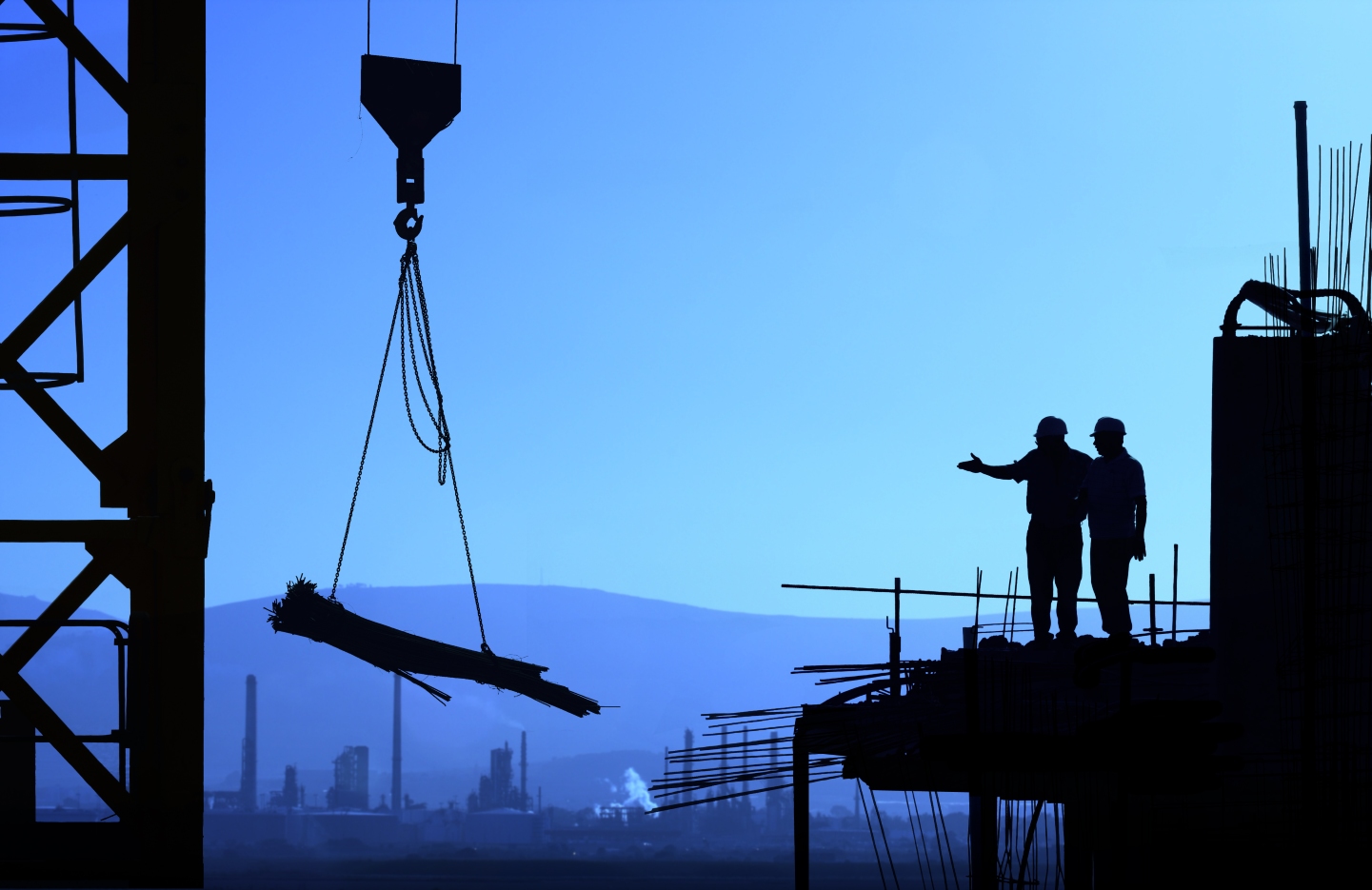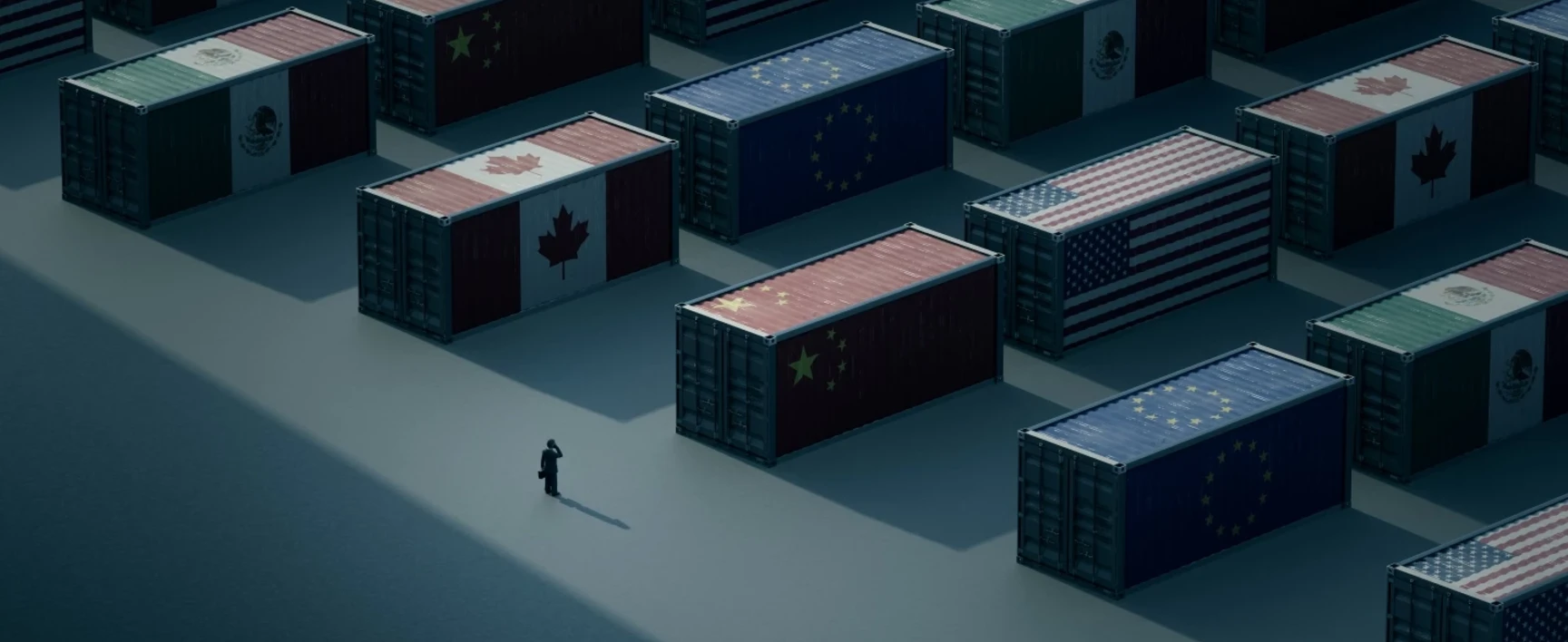Navigating the Market of Uncertainty: Fraud and Corruption Risk in the Wake of U.S. Tariff Policy Shifts
The constant back-and-forth in debates over tariffs, coupled with unpredictable policy shifts under the Trump Administration, has thrown global markets into a state of uncertainty. This volatility has left investors uneasy, as they grapple with the question of how businesses and consumers worldwide will navigate the evolving trade landscape. Tariffs, while intended to protect domestic industries, have disrupted international trade flows, creating economic pressures and regulatory complexities that amplify risks for unethical practices.
For instance, tariffs imposed on China have significantly increased costs for U.S. companies importing steel, aluminum, and solar components, disrupting supply chains and project budgets. Mexico, a key trading partner under the USMCA, faces logistical challenges as tariffs inflate costs for materials like concrete and steel, while weak enforcement mechanisms exacerbate corruption risks. Canada, another USMCA partner, has seen tariffs drive up lumber prices, impacting construction costs across the U.S. Similarly, European nations, such as Germany, have faced tariffs on machinery and industrial equipment, complicating large-scale infrastructure projects in the U.S.
In this environment of unpredictability, fraud, bribery, and corruption have emerged as pressing concerns, threatening corporate integrity and compliance. This article explores how these tariff-related challenges may foster unethical practices and outlines strategies for mitigation.



Impact of Tariffs
Corporate Operations

Tariffs, while intended to shield domestic industries, have profoundly impacted the operations of businesses involved in international trade—particularly those engaging with the United States' major trading partners: China, Mexico, and Canada. These nations form the backbone of U.S. trade, and the imposition of tariffs has significantly raised the cost of goods and disrupted established supply chains. For companies striving to remain competitive, these increased operational costs often lead to the adoption of unethical practices.
In the case of China, where trade disputes and high tariffs have been most pronounced, some businesses may attempt to misclassify goods or underreport their value to avoid excessive duties. Bribery risks also may escalate as companies seek to sway customs officials or regulators to overlook discrepancies, all while navigating the complexities of a highly regulated trade environment.
Mexico and Canada, being pivotal players under the U.S.-Mexico-Canada Agreement (USMCA), also see their share of challenges. In Mexico, where corruption risks are exacerbated by uneven enforcement, businesses may resort to kickbacks or other underhanded tactics to expedite border crossings or bypass compliance requirements. Canada, while enjoying a more stable enforcement regime, is not immune to instances where companies engage in fraudulent practices to cope with sudden tariff adjustments or border delays.
Across these trade relationships, the interplay of increased costs, regulatory complexity, and supply chain pressures creates fertile ground for fraud, bribery, and corruption. Navigating bureaucratic hurdles, particularly in regions with lax enforcement mechanisms, further incentivizes unethical behavior as businesses grapple with the financial burden of tariffs and the unpredictable nature of shifting trade policies.
Tariffs, while intended to shield domestic industries, have profoundly impacted the operations of businesses involved in international trade—particularly those engaging with the United States' major trading partners: China, Mexico, and Canada. These nations form the backbone of U.S. trade, and the imposition of tariffs has significantly raised the cost of goods and disrupted established supply chains. For companies striving to remain competitive, these increased operational costs often lead to the adoption of unethical practices.
In the case of China, where trade disputes and high tariffs have been most pronounced, some businesses may attempt to misclassify goods or underreport their value to avoid excessive duties. Bribery risks also may escalate as companies seek to sway customs officials or regulators to overlook discrepancies, all while navigating the complexities of a highly regulated trade environment.
Mexico and Canada, being pivotal players under the U.S.-Mexico-Canada Agreement (USMCA), also see their share of challenges. In Mexico, where corruption risks are exacerbated by uneven enforcement, businesses may resort to kickbacks or other underhanded tactics to expedite border crossings or bypass compliance requirements. Canada, while enjoying a more stable enforcement regime, is not immune to instances where companies engage in fraudulent practices to cope with sudden tariff adjustments or border delays.
Across these trade relationships, the interplay of increased costs, regulatory complexity, and supply chain pressures creates fertile ground for fraud, bribery, and corruption. Navigating bureaucratic hurdles, particularly in regions with lax enforcement mechanisms, further incentivizes unethical behavior as businesses grapple with the financial burden of tariffs and the unpredictable nature of shifting trade policies.

Impact of Tariffs
Energy & Construction Industries
The energy and construction industries, both vital pillars of the U.S. economy, have felt significant ripples from the implementation of tariffs. These sectors are uniquely sensitive to trade policies due to their reliance on imported raw materials, specialized components, and intricate supply chains.
In the energy industry, tariffs on imported steel and aluminum have driven up costs for the construction and maintenance of critical infrastructure, such as pipelines, refineries, and renewable energy installations. Steel, for instance, is a cornerstone material for oil and gas pipeline projects, and the increased costs due to tariffs threaten project budgets and timelines. Additionally, solar energy projects have faced challenges as tariffs on imported solar panels and components have inflated costs, leading to delays or cancellations in some cases. These pressures disrupt efforts to expand renewable energy capacity, directly impacting both corporate operations and broader energy transition goals.
The construction industry has similarly been hit hard, as it too depends heavily on imported steel, aluminum, and other materials. Tariffs have significantly increased the price of materials, creating challenges for both commercial and residential construction projects. Builders often find themselves absorbing the additional costs or passing them on to consumers, which can dampen demand. Furthermore, supply chain disruptions caused by tariff policies exacerbate delays in material procurement, impacting project timelines and workforce utilization.
These financial strains create fertile ground for unethical practices, including cost-cutting measures that compromise safety standards or the use of lower-quality, non-compliant materials. In some cases, companies may also resort to misclassifying imported materials or bribing officials to bypass heightened regulatory scrutiny.
The cascading effects of tariffs on these industries underscore the importance of strategic planning and adherence to ethical practices. Energy and construction companies must remain vigilant to navigate these challenges while safeguarding their operations, reputation, and compliance with regulations.

The energy and construction industries, both vital pillars of the U.S. economy, have felt significant ripples from the implementation of tariffs. These sectors are uniquely sensitive to trade policies due to their reliance on imported raw materials, specialized components, and intricate supply chains.
In the energy industry, tariffs on imported steel and aluminum have driven up costs for the construction and maintenance of critical infrastructure, such as pipelines, refineries, and renewable energy installations. Steel, for instance, is a cornerstone material for oil and gas pipeline projects, and the increased costs due to tariffs threaten project budgets and timelines. Additionally, solar energy projects have faced challenges as tariffs on imported solar panels and components have inflated costs, leading to delays or cancellations in some cases. These pressures disrupt efforts to expand renewable energy capacity, directly impacting both corporate operations and broader energy transition goals.
The construction industry has similarly been hit hard, as it too depends heavily on imported steel, aluminum, and other materials. Tariffs have significantly increased the price of materials, creating challenges for both commercial and residential construction projects. Builders often find themselves absorbing the additional costs or passing them on to consumers, which can dampen demand. Furthermore, supply chain disruptions caused by tariff policies exacerbate delays in material procurement, impacting project timelines and workforce utilization.
These financial strains create fertile ground for unethical practices, including cost-cutting measures that compromise safety standards or the use of lower-quality, non-compliant materials. In some cases, companies may also resort to misclassifying imported materials or bribing officials to bypass heightened regulatory scrutiny.
The cascading effects of tariffs on these industries underscore the importance of strategic planning and adherence to ethical practices. Energy and construction companies must remain vigilant to navigate these challenges while safeguarding their operations, reputation, and compliance with regulations.
The imposition of tariffs on goods has further amplified challenges for U.S. companies, reshaping corporate operations across the energy and construction sectors. These industries are particularly sensitive to tariff policies due to their heavy reliance on imported materials and specialized components from major trading partners, including China, Mexico, Canada, and Europe.
China
High tariffs on Chinese steel, aluminum, and solar components will disrupt cost structures, driving up expenses for pipeline construction, energy infrastructure projects, and renewable energy installations. U.S. companies dependent on Chinese imports may face delays and cancellations as elevated costs make some projects financially unviable. In the solar industry, for instance, tariffs on imported panels have stymied growth in renewable energy, with developers struggling to absorb inflated costs.
Mexico
Mexico contributes to the energy and construction industries by exporting materials like concrete and steel and playing a vital role in the cross-border supply chain. Tariffs on goods imported from Mexico increase logistical costs and exacerbate supply chain disruptions, particularly for materials critical to infrastructure and building projects. Additionally, weak enforcement in certain areas creates risks of corruption, with companies resorting to kickbacks or informal arrangements to facilitate material flow across borders.
Canada
Canada supplies essential materials such as timber, metals, and oil. U.S. tariffs add significant costs to imported goods, pressuring budgets for energy and construction projects. For example, increased prices for Canadian lumber have reverberated across the U.S. construction industry, driving up costs for residential and commercial buildings. Border delays and tariff adjustments further complicate the timely delivery of materials.
Europe
European nations play a significant role in supplying advanced machinery, industrial equipment, and specialized components essential to energy and construction operations. Tariffs on European imports impact high-tech projects and infrastructure that rely on precision-manufactured tools and parts. For instance, the imposition of tariffs on machinery from Germany, a global leader in engineering, has created challenges for U.S. construction companies, particularly those engaged in large-scale infrastructure projects. Moreover, the retaliatory nature of European tariffs on U.S. exports adds another layer of complexity, as companies face difficulties when attempting to balance trade relationships.
Fraud, Bribery, and Corruption
Key Drivers
Economic constraints are at the forefront of this issue -
With tariffs inflating operational costs, some companies find themselves cornered into resorting to deceptive practices. These include misclassifying goods, underreporting import values, or outright falsifying documentation—all desperate measures aimed at reducing financial burdens. Yet, it doesn't stop there. The shadowy specter of bribery arises, as organizations attempt to sway customs officials or regulators to ignore non-compliance or fast-track their processing.
Adding to the turmoil is the complexity of tariff regulations themselves -
These policies are often labyrinthine in nature, riddled with intricate requirements and opaque schedules. This complexity opens doors to unethical actors, who seize the opportunity to exploit oversight gaps. Bribery becomes a tool to mask these illicit maneuvers, enabling companies to operate under the radar. Corruption also finds fertile ground in the convolutions of global trade regulations, where businesses may rely on unethical practices simply to circumvent the numerous hurdles.
The reliability of supply chains has become a precarious question in the face of tariff disruptions -
Companies struggling to maintain stability in their operations sometimes turn to corrupt practices, offering kickbacks to secure critical resources or to ensure their shipments receive priority handling. The high stakes of maintaining supply chain efficiency in this volatile environment make these practices more tempting for those willing to skirt the rules.
Potential Trends
The pressures created by tariffs and trade complexities may lead to an increase in cross-border corruption, particularly in industries like manufacturing, technology, and logistics. With businesses striving to manage elevated costs and intricate regulations, there is the potential for bribery across international boundaries as a method to bypass trade restrictions or expedite processes. These interactions with public officials could become a focal point, exposing weaknesses in regulatory frameworks and enforcement mechanisms.
There is also the possibility of a growing reliance on shell companies and opaque financial structures to conceal illicit activities. Such entities offer anonymity, which may encourage fraudulent practices and complicate efforts to trace financial transactions. Fraudsters may exploit these hidden networks to manipulate financial flows, posing challenges to transparency and accountability in global markets.
Should these risks materialize, companies implicated in bribery and corruption scandals could face severe consequences. Fines and penalties could be accompanied by a decline in market confidence, undermining corporate stability. The most enduring impact, however, could be reputational damage, as trust among stakeholders, investors, and consumers erodes—leaving lasting effects on the company’s operations and public image.
In an environment shaped by tariffs and economic strain, the risks of fraud, bribery, and corruption highlight the importance of proactive strategies to safeguard corporate integrity.

Staying Vigilant :
Strategies for Mitigation

Addressing the risks of fraud, bribery, and corruption requires a multifaceted approach, beginning with the establishment of robust compliance frameworks. While regulations like the Foreign Corrupt Practices Act (FCPA) are designed to provide clear guidelines and safeguards against unethical practices, enforcement has recently come under scrutiny. In February 2025, President Donald Trump signed an Executive Order pausing FCPA enforcement for 180 days, citing concerns that overexpansive enforcement was harming American economic competitiveness and national security. This pause has created uncertainty around the future of FCPA enforcement, making it even more critical for organizations to take proactive measures.
Companies must prioritize internal anti-bribery programs to mitigate risks, regardless of external enforcement. Regular internal audits remain essential for identifying vulnerabilities within operations and supply chains before they escalate into significant risks.
In addition to compliance measures, technology-driven solutions are powerful tools in combating misconduct. Advanced data analytics and AI-powered fraud detection systems allow businesses to analyze vast amounts of transactional data, uncovering hidden patterns that might signal bribery or fraudulent behavior. Blockchain technology further enhances transparency by creating immutable records of supply chain activities, reducing opportunities for corrupt practices to thrive.
Equally important is fostering an ethical corporate culture. When leadership demonstrates a strong commitment to integrity, it establishes a foundation for the entire organization. Employees are more likely to prioritize compliance and understand the consequences of unethical actions when ethical practices are deeply ingrained in the company's values and operations.
Collaboration with regulatory authorities is another essential strategy. However, the Executive Order has highlighted the need for organizations to be proactive, rather than relying solely on external oversight. Partnering with industry groups and leveraging collective initiatives can strengthen oversight and help businesses mitigate risks associated with fraud, bribery, and corruption.
Through these combined efforts—strengthening compliance frameworks, leveraging technology, promoting an ethical culture, and compensating for regulatory gaps—companies can effectively safeguard their integrity and ensure resilience in today’s complex global marketplace.
Addressing the risks of fraud, bribery, and corruption requires a multifaceted approach, beginning with the establishment of robust compliance frameworks. While regulations like the Foreign Corrupt Practices Act (FCPA) are designed to provide clear guidelines and safeguards against unethical practices, enforcement has recently come under scrutiny. In February 2025, President Donald Trump signed an Executive Order pausing FCPA enforcement for 180 days, citing concerns that overexpansive enforcement was harming American economic competitiveness and national security. This pause has created uncertainty around the future of FCPA enforcement, making it even more critical for organizations to take proactive measures.
Companies must prioritize internal anti-bribery programs to mitigate risks, regardless of external enforcement. Regular internal audits remain essential for identifying vulnerabilities within operations and supply chains before they escalate into significant risks.
In addition to compliance measures, technology-driven solutions are powerful tools in combating misconduct. Advanced data analytics and AI-powered fraud detection systems allow businesses to analyze vast amounts of transactional data, uncovering hidden patterns that might signal bribery or fraudulent behavior. Blockchain technology further enhances transparency by creating immutable records of supply chain activities, reducing opportunities for corrupt practices to thrive.
Equally important is fostering an ethical corporate culture. When leadership demonstrates a strong commitment to integrity, it establishes a foundation for the entire organization. Employees are more likely to prioritize compliance and understand the consequences of unethical actions when ethical practices are deeply ingrained in the company's values and operations.
Collaboration with regulatory authorities is another essential strategy. However, the Executive Order has highlighted the need for organizations to be proactive, rather than relying solely on external oversight. Partnering with industry groups and leveraging collective initiatives can strengthen oversight and help businesses mitigate risks associated with fraud, bribery, and corruption.
Through these combined efforts—strengthening compliance frameworks, leveraging technology, promoting an ethical culture, and compensating for regulatory gaps—companies can effectively safeguard their integrity and ensure resilience in today’s complex global marketplace.
Conclusion
In a trade environment shaped by shifting U.S. tariff policies and regulatory uncertainty, the energy and construction industries stand out as particularly vulnerable to fraud, bribery, and corruption risks. Tariffs on steel, aluminum, and other critical materials have driven up costs for energy infrastructure projects such as pipelines and refineries, while complicating efforts to expand renewable energy capacity due to inflated prices for solar panels and components. Construction companies face similar struggles, with increased costs for imported steel, aluminum, and lumber impacting residential and commercial projects, as well as large-scale infrastructure development.
The reliance of these industries on international supply chains—often involving key trading partners like China, Mexico, Canada, and Europe—further compounds their exposure to unethical practices. Delays and price fluctuations caused by tariffs heighten the temptation to engage in cost-cutting measures or misclassify imported materials. Moreover, corruption risks, such as offering kickbacks to expedite shipments or bypass compliance scrutiny, are exacerbated by gaps in enforcement and the absence of consistent regulatory oversight, especially with President Donald Trump’s Executive Order pausing enforcement of the Foreign Corrupt Practices Act (FCPA).
To mitigate these risks, companies must take proactive measures to safeguard operations and maintain compliance. Establishing robust anti-bribery frameworks, utilizing advanced technologies like AI-driven fraud detection and blockchain for transparency, and fostering a corporate culture of integrity are essential strategies. For energy and construction businesses especially, adapting to this unpredictable trade landscape requires not only vigilance but also a commitment to ethical practices that protect their reputation and resilience.
Tackling the heightened risks of fraud, bribery, and corruption is not merely a necessity for survival—it is a chance for companies to lead by example and uphold ethical standards in an evolving global economy
In today's global business environment, the risks of fraud, bribery, and corruption are ever-present and can have devastating impacts on your organization's reputation and financial health. SOCOTEC offers comprehensive Anti-Fraud, Bribery & Corruption Consulting Services designed to safeguard your business from these threats.
Do you have any questions about Tariffs, Fraud, Bribery, Corruption or Supply Chain and Material Risks? Contact our experts today.

You may also like

Get the latest updates about SOCOTEC, subscribe to our newsletter!
Get the latest updates about SOCOTEC, subscribe to our newsletter!







